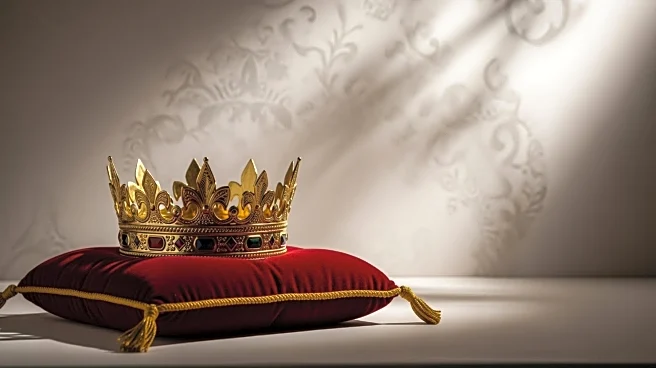What's Happening?
Prince Andrew has announced he will no longer use his Duke of York title, a decision made in consultation with King Charles III. This move follows ongoing controversies surrounding his association with Jeffrey Epstein. Despite relinquishing his title, Andrew remains
a prince by birthright and eighth in line to the British throne. The decision marks a significant step in distancing the royal family from the negative publicity associated with Andrew's past actions.
Why It's Important?
The relinquishment of the Duke of York title by Prince Andrew is a rare occurrence within the British royal family, highlighting the severity of the situation. This decision is significant as it reflects the royal family's efforts to protect its reputation amidst ongoing scandals. The move may influence public perception of the monarchy, potentially restoring some public trust. It also underscores the challenges faced by the royal family in managing personal scandals that impact their public duties and image.
What's Next?
The decision may lead to further distancing of Prince Andrew from public and family events, as indicated by royal experts. The royal family will likely continue to navigate the fallout from Andrew's past associations, with potential implications for his residence and future public appearances. The ongoing release of documents related to Epstein's estate and upcoming publications may continue to impact Andrew's public standing and the royal family's efforts to manage the situation.
Beyond the Headlines
The relinquishment of the title raises questions about the balance between personal accountability and institutional reputation within the monarchy. It also highlights the broader implications of personal scandals on public institutions and the measures taken to mitigate reputational damage. The situation may prompt discussions on the role of the monarchy in modern society and the expectations of accountability for its members.
















